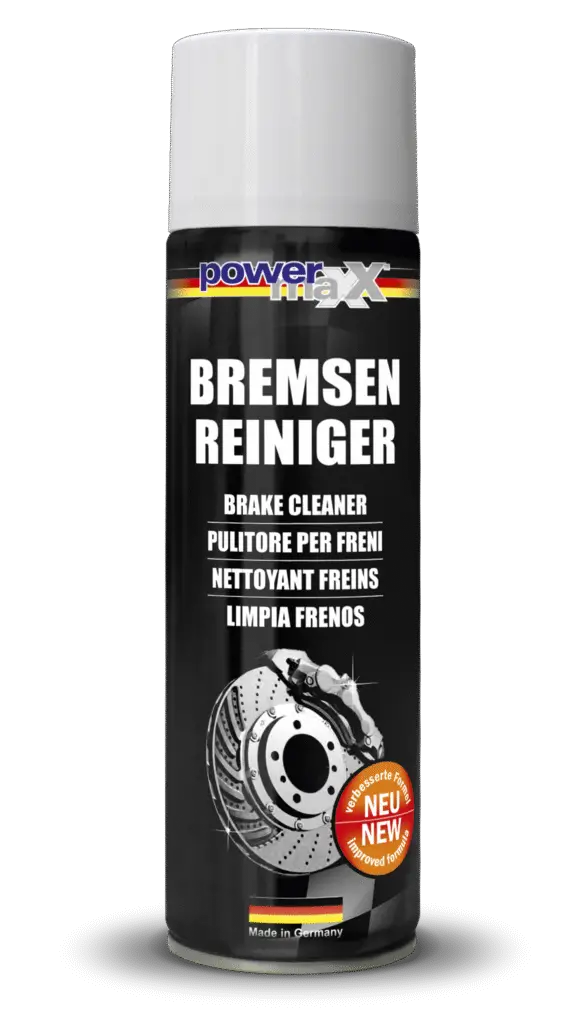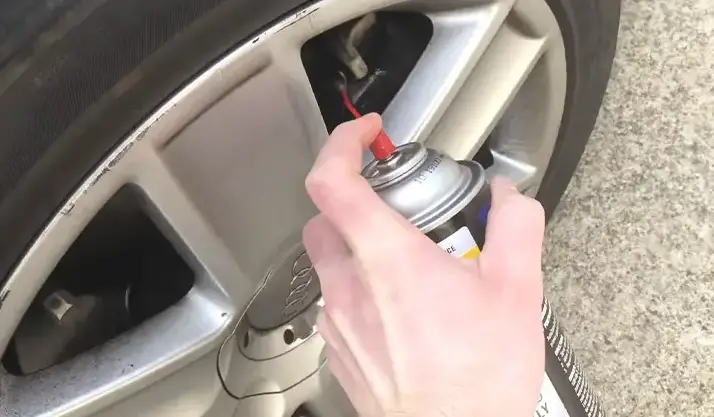Can you spray brake cleaner on brake pads? Yes, but apply brake cleaner to a cloth and wipe gently to avoid contamination. Let the pads dry completely before reinstalling.
Maintaining the vehicle’s braking system is a crucial aspect of vehicle safety and performance. One of the most commonly asked questions among car enthusiasts and DIY mechanics is whether it’s safe and effective to spray brake cleaner on brake pads. Brake cleaner is widely used in the automotive industry for cleaning various brake components. However, its direct application on brake pads has raised several concerns.
In this comprehensive guide, we will explore the benefits, risks, and best practices for using brake cleaner on brake pads and help you decide if it’s the right approach for you.

Contents
Can You Spray Brake Cleaner on Brake Pads?
Spraying brake cleaner on brake pads is a common cleaning method, but it should be done carefully to avoid damaging the pads or affecting their performance. Let’s explore the best practices for using brake cleaner on brake pads effectively.
Yes, but With Caution
Spraying brake cleaner on brake pads is generally considered safe, but there are several factors you need to consider to ensure you do it correctly. Let’s explore the potential risks and benefits of using brake cleaner on brake pads and the best practices to follow.
Why You Should Be Cautious
While brake cleaner is effective in removing contaminants, using it directly on brake pads can lead to potential risks. It’s important to apply it properly to avoid affecting the performance and longevity of the pads.
- Brake Pad Contamination: Brake pads are designed to be porous and absorb certain liquids. If you spray brake cleaner directly onto the brake pads, there is a risk of contaminating them with unwanted chemicals. Brake cleaner, though fast-evaporating, can leave behind a residue that may impact the friction material on the pads and reduce braking performance.
- The Effect of Solvents on Friction Materials: Some brake cleaners contain harsh solvents that can weaken the bond between the friction material and the pad. This can affect the efficiency of braking and potentially cause premature wear or damage to the pads.
- Drying Time: Although brake cleaner evaporates quickly, it’s essential to allow sufficient drying time. If you don’t allow the brake pads to fully dry before reassembling them, you risk introducing contaminants that can negatively affect their performance.

Best Practices for Using Brake Cleaner on Brake Pads
To ensure proper cleaning and avoid damaging the brake pads, it’s essential to follow best practices when using brake cleaner. Here are some tips to help you clean the pads safely and effectively.
1. Remove the Brake Pads
The best approach to cleaning the brake pads is to remove them from the vehicle. This allows you to clean them thoroughly and inspect them for wear or damage. If you don’t remove the brake pads, cleaning them becomes a much harder task and can lead to improper cleaning.
2. Apply Brake Cleaner Sparingly
Rather than spraying the brake cleaner directly on the pads, it’s better to apply the cleaner to a lint-free cloth or towel and gently wipe the pads. This ensures that you only apply a small amount of cleaner and can control the application. Avoid soaking the brake pads, as this could lead to contamination and affect their performance.
3. Allow Pads to Dry Completely
Once you’ve cleaned the pads, it’s essential to let them dry completely before reinstalling them. Brake cleaner evaporates quickly, but residual moisture can still affect the pad’s functionality. Make sure that the pads are thoroughly dry before reinstalling them on your vehicle to ensure optimal braking performance.
4. Clean Other Brake Components as Well
While you’re cleaning the brake pads, it’s a good time to clean other components of the brake system, such as the rotors and calipers. Applying brake cleaner to these parts can help remove dirt, oil, and brake fluid, which can improve the overall performance of the braking system.
Precautions to Take
Although brake cleaner is a helpful tool, it’s important to use it with care. Here are some precautions to keep in mind:
Avoid Rubber Components
Brake cleaner is a strong solvent that can damage rubber seals, hoses, and other rubber components in the brake system. Be sure to protect any rubber parts when cleaning your brakes to avoid unnecessary damage.
Work in a Well-Ventilated Area
Brake cleaner contains volatile chemicals that can be harmful when inhaled. Always use brake cleaner in a well-ventilated space, such as a garage with good airflow, to avoid inhaling fumes. Wearing a respirator or mask is also advisable if you’re working with large amounts of brake cleaner.
Wear Protective Gear
Brake cleaners can be harsh on the skin and eyes. Always wear gloves and safety glasses to protect yourself from splashes when working with brake cleaner. Additionally, consider wearing long sleeves and pants to protect your skin from potential exposure to the chemicals.
Alternatives to Brake Cleaner
If you are not comfortable with using brake cleaner on brake pads, or if you’re concerned about the environmental impact, there are several alternatives to consider.
Isopropyl Alcohol
Isopropyl alcohol is a gentler and safer option for cleaning brake components. It works similarly to brake cleaner in terms of removing oils and grease, but it is less likely to cause harm to the environment and is generally safer for rubber components.
Dedicated Brake Pad Cleaners
Some manufacturers offer specific products designed for cleaning brake pads. These products are often more gentle and can be a better choice for cleaning brake pads without the risks associated with using harsh brake cleaners.
Frequently Asked Questions
Here are some FAQs about can you spray brake cleaner on brake pads –
1. Can I use brake cleaner on brake rotors?
Yes, brake cleaner is safe for use on rotors. It helps remove grease, brake fluid, and dust from the rotor surface, improving braking performance.
2. How often should I clean my brake pads?
It’s recommended to clean your brake pads at least once a year or when you notice a decrease in braking efficiency or unusual noises.
3. Does brake cleaner remove brake pad squeal?
Brake cleaner can help remove the dust and debris that cause brake squeal. However, persistent squealing may indicate worn-out pads or other issues that require further inspection.
4. Is brake cleaner safe for ABS systems?
Yes, brake cleaner is generally safe for ABS systems. However, it’s important to avoid spraying it on sensitive parts like sensors or rubber seals.
5. Can I clean brake pads without removing them?
While you can clean brake pads without removing them, it is highly recommended to remove them for a more thorough cleaning and inspection.
Conclusion
So, can you spray brake cleaner on brake pads? The short answer is yes, but it should be done with caution. While brake cleaner is an effective way to clean brake pads, it’s essential to use it correctly to avoid damaging the brake pads and compromising their performance. Always apply brake cleaner sparingly, avoid contaminating the pads, and ensure that they are completely dry before reinstallation.
If you’re not sure or prefer to err on the side of caution, consider using alternatives like isopropyl alcohol or dedicated brake pad cleaning products.
Maintaining your braking system is vital for the vehicle’s safety and performance. Regular cleaning and inspection of your brake components can extend their lifespan and ensure they function effectively when you need them most.